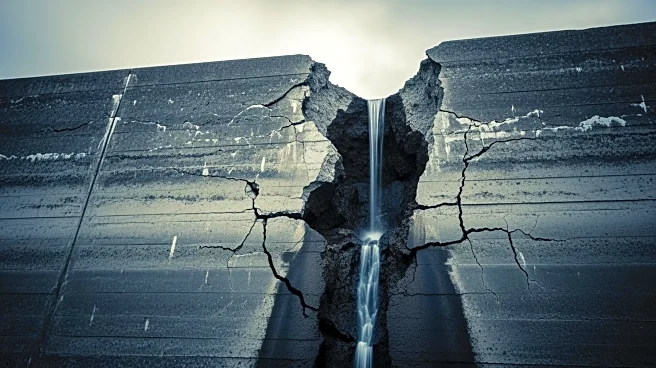What's Happening?
A UK court has found the Australian mining giant BHP liable for the 2015 dam collapse in Brazil, which resulted in 19 deaths and extensive environmental damage. The Fundão tailings dam failure released toxic mine waste across 675 kilometers, affecting
numerous towns and waterways. The ruling by Judge Finola O’Farrell cited negligence and lack of skill as factors leading to the disaster. The case represents the largest environmental class action lawsuit in UK history, involving over 610,000 people and numerous businesses. BHP, which co-owns the dam operator Samarco with Vale, plans to appeal the decision.
Why It's Important?
The ruling has significant implications for corporate accountability and environmental justice. It sets a precedent for holding multinational companies responsible for environmental disasters, regardless of where they occur. The decision could influence future litigation involving environmental damage and corporate negligence, potentially leading to stricter regulations and oversight in the mining industry. The case also highlights the ongoing challenges in addressing the aftermath of such disasters, including compensation for affected communities and environmental restoration efforts.
What's Next?
The next phase of the trial will determine the compensation amount to be paid to the claimants, with Pogust Goodhead seeking $47 billion. Vale has agreed to share any compensation costs with BHP. The appeal process may delay the final resolution, but the ruling is likely to prompt discussions on improving safety standards and regulatory compliance in the mining sector. Stakeholders, including environmental groups and affected communities, will continue to advocate for accountability and reparations.
Beyond the Headlines
The case underscores the ethical and legal responsibilities of corporations in managing environmental risks. It raises questions about the adequacy of existing safety protocols and the role of government oversight in preventing such disasters. The ruling may encourage other affected communities worldwide to pursue legal action against corporations for environmental harm, potentially leading to a shift in corporate practices and increased emphasis on sustainable development.
















